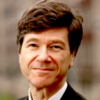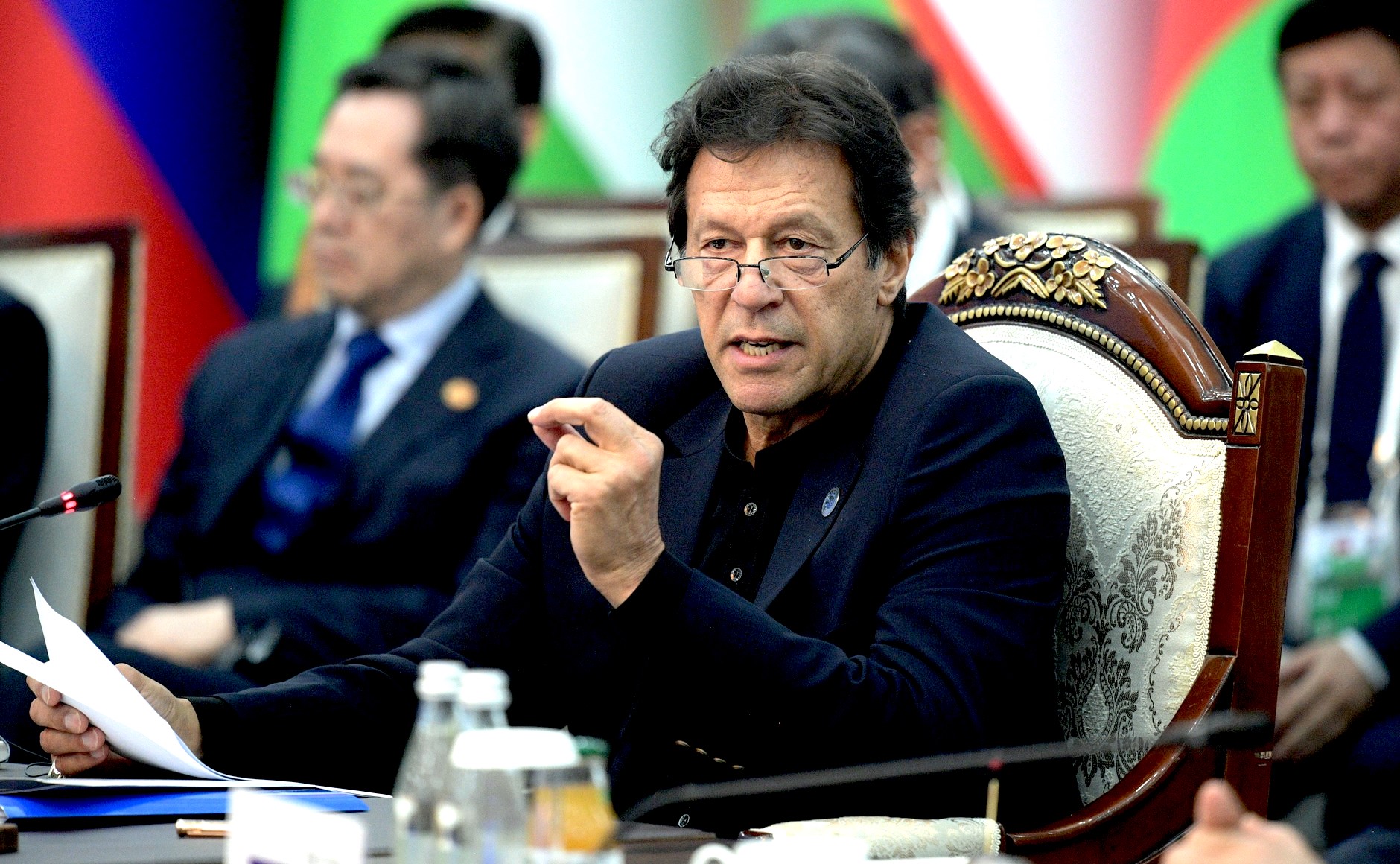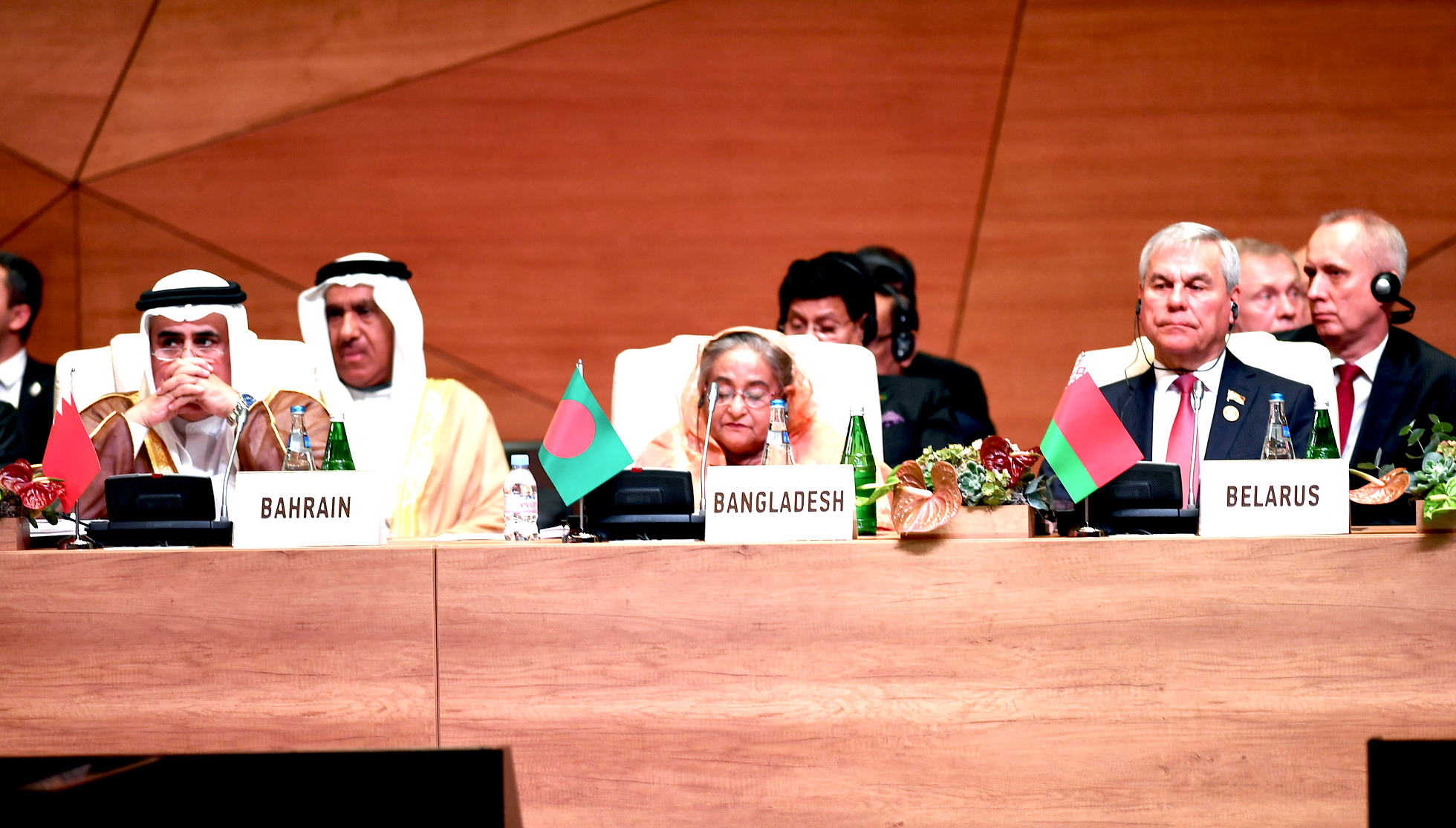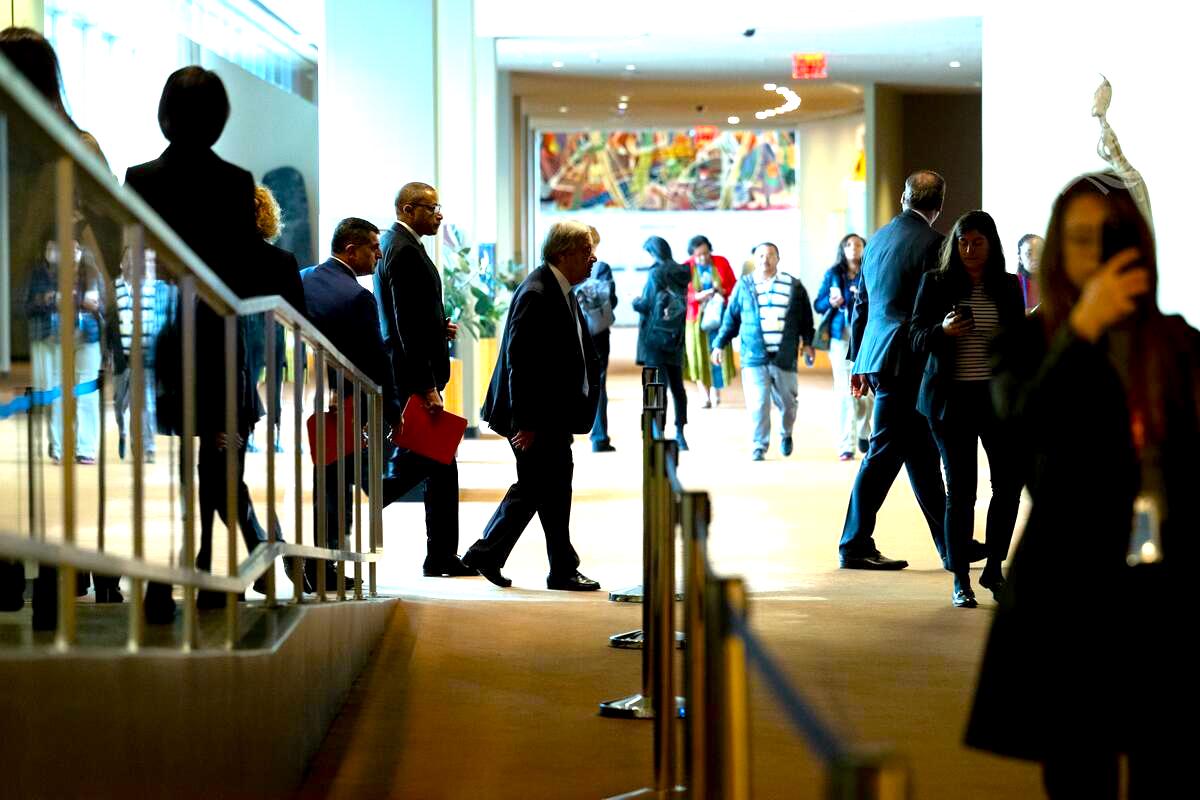Jeffrey D. Sachs says the U.N. should investigate the charges that Imran Khan and Sheik Hasina have leveled against Washington.

Mass victory rally on an elevated expressway in Dhaka, Bangladesh, after Sheikh Hasina’s resignation on Aug. 5. (Md Joni Hossain, Wikimedia Commons, CC BY-SA 4.0)
By Jeffrey D. Sachs
Common Dreams
 Two former leaders of major South Asian countries have reportedly accused the United States of covert regime change operations to topple their governments.
Two former leaders of major South Asian countries have reportedly accused the United States of covert regime change operations to topple their governments.
One of the leaders, former Pakistan Prime Minister Imran Khan, languishes in prison, on a perverse conviction that proves Khan’s assertion. The other leader, former Bangladesh Prime Minister Sheik Hasina, fled to India following a violent coup in her country.
Their grave accusations against the U.S., as reported in the world media, should be investigated by the U.N., since if true, the U.S. actions would constitute a fundamental threat to world peace and to regional stability in South Asia.
The two cases seem to be very similar. The very strong evidence of the U.S. role in toppling the government of Imran Khan raises the likelihood that something similar may have occurred in Bangladesh.
In the case of Pakistan, Donald Lu, assistant secretary of state for South Asia and Central Asia, met with Asad Majeed Khan, Pakistan’s ambassador to the U.S., on March 7, 2022.
Ambassador Khan immediately wrote back to his capital, conveying Lu’s warning that PM Khan threatened U.S.-Pakistan relations because of Khan’s “aggressively neutral position” regarding Russia and Ukraine.
[Related: Craig Murray: The Silence on Imran Khan]
The ambassador’s March 7 note (technically a diplomatic cypher) quoted Assistant Secretary Lu as follows:
“I think if the no-confidence vote against the Prime Minister succeeds, all will be forgiven in Washington because the Russia visit is being looked at as a decision by the Prime Minister. Otherwise, I think it will be tough going ahead.”
The very next day, members of the parliament took procedural steps to oust PM Khan.

Khan at the Shanghai Cooperation Organisation summit in June 2019. (Kremlin, Wikimedia Commons, CC BY 4.0)
On March 27, PM Khan brandished the cypher, and told his followers and the public that the U.S. was out to bring him down. On April 10, PM Khan was thrown out of office as the Parliament acceded to the U.S. threat.
We know this in detail because of Ambassador Khan’s cypher, exposed by PM Khan and brilliantly documented by Ryan Grim of The Intercept, including the text of the cypher. Absurdly and tragically, PM Khan languishes in prison in part over espionage charges, linked to his revealing the cypher.
Bangladesh Coup
The U.S. appears to have played a similar role in the recent violent coup in Bangladesh. PM Hasina was ostensibly toppled by student unrest, and fled to India when the Bangladeshi military refused to prevent the protestors from storming the government offices. Yet there may well be much more to the story than meets the eye.
According to press reports in India, PM Hasina is claiming that the U.S. brought her down.
Specifically, she says that the U.S. removed her from power because she refused to grant the U.S. military facilities in a region that is considered strategic for the U.S. in its “Indo-Pacific Strategy” to contain China.
While these are second-hand accounts by the Indian media, they track closely several speeches and statements that Hasina has made over the past two years.
On May 17, the same Assistant Secretary Lu who played a lead role in toppling PM Khan, visited Dhaka to discuss the U.S. Indo-Pacific Strategy among other topics.
Days later, Sheikh Hasina reportedly summoned the leaders of the 14 parties of her alliance to make the startling claim that a “country of white-skinned people” was trying to bring her down, ostensibly telling the leaders that she refused to compromise her nation’s sovereignty.
Like Imran Khan, PM Hasina had been pursuing a foreign policy of neutrality, including constructive relations not only with the U.S. but also with China and Russia, much to the deep consternation of the U.S. government.

Sheik Hasina at the 2019 summit of the Non-Aligned Movement in Baku. (President.az, Wikimedia Commons, CC BY 4.0)
To add credence to Hasina’s charges, Bangladesh had delayed signing two military agreements that the U.S. had pushed very hard since 2022, indeed by none other than the former Under-Secretary of State Victoria Nuland, the neocon hardliner with her own storied history of U.S. regime-change operations.
One of the draft agreements, the General Security of Military Information Agreement (GSOMIA), would bind Bangladesh to closer military-to-military cooperation with Washington. The government of PM Hasina was clearly not enthusiastic to sign it.
The U.S. is by far the world’s leading practitioner of regime-change operations, yet the U.S. flatly denies its role in covert regime change operations even when caught red-handed, as with Nuland’s infamous intercepted phone call in late January 2014 planning the U.S.-led regime change operation in Ukraine.
It is useless to appeal to the U.S. Congress, and still less the executive branch, to investigate the claims by PM Khan and PM Hasina. Whatever the truth of the matter, they will deny and lie as necessary.
UN Role

U.N. staff and delegates at U.N. headquarters ahead of Security Council meeting on peacebuilding and sustaining peace in March. (UN Photo/Manuel Elías)
This is where the U.N. should step in. Covert regime change operations are blatantly illegal under international law (notably the Doctrine of Non-Intervention, as expressed for example in U.N. General Assembly Resolution 2625, 1970), and constitute perhaps the greatest threat to world peace, as they profoundly destabilize nations, and often lead to wars and other civil disorders.
The U.N. should investigate and expose covert regime change operations, both in the interests of reversing them, and preventing them in the future.
The U.N. Security Council is of course specifically charged under Article 24 of the U.N. Charter with “primary responsibility for the maintenance of international peace and security.”
When evidence arises that a government has been toppled through the intervention or complicity of a foreign government, the U.N. Security Council should investigate the claims.
In the cases of Pakistan and Bangladesh, the U.N. Security Council should seek the direct testimony of PM Khan and PM Hasina in order to evaluate the evidence that the U.S. played a role in the overthrow of the governments of these two leaders.
Each, of course, should be protected by the U.N. for giving their testimony, so as to protect them from any retribution that could follow their honest presentation of the facts. Their testimony can be taken by video conference, if necessary, given the tragic ongoing incarceration of PM Khan.
The U.S. might well exercise its veto in the U.N. Security Council to prevent such a investigation. In that case, the U.N. General Assembly can take up the matter, under U.N. Resolution A/RES/76/, which allows the U.N. General Assembly to consider an issue blocked by veto in the U.N. Security Council.
The issues at stake could then be assessed by the entire membership of the U.N.. The veracity of the U.S. involvement in the recent regime changes in Pakistan and Bangladesh could then be objectively analyzed and judged on the evidence, rather than on mere assertions and denials.
The U.S. engaged in at least 64 covert regime change operations during 1947-1989, according to documented research by Lindsey O’Rourke, political science professor at Boston Collage, and several more that were overt (e.g. by U.S.-led war).
It continues to engage in regime-change operations with shocking frequency to this day, toppling governments in all parts of the world.
It is wishful thinking that the U.S. will abide by international law on its own, but it is not wishful thinking for the world community, long suffering from U.S. regime change operations, to demand their end at the United Nations.
Jeffrey D. Sachs is a university professor and director of the Center for Sustainable Development at Columbia University, where he directed The Earth Institute from 2002 until 2016. He is also president of the U.N. Sustainable Development Solutions Network and a commissioner of the U.N. Broadband Commission for Development.
This article is from Common Dreams.
Views expressed in this article and may or may not reflect those of Consortium News.

From the article: “. . . PM Khan threatened U.S.-Pakistan relations because of Khan’s ‘aggressively neutral position’ regarding Russia and Ukraine.”
Wow! To be “aggressively neutral” would seem to be an absurdity . . . until you consider the courage and the muscular effort required to resist the attacks and threats and pressures to capitulate to a bullying diplomacy that stresses “you’re either with us or against us.” Shameful!
Perhaps countries around the world should realise the threat of US regime change operations. From Bangladesh to Pakistan or Syria to Ukraine, letting these CIA/NED types and their propaganda apparatus operate with impunity is why they’ve been so effective.
These countries are not actively jailing traitors that work with foreign intelligence nor blocking their media organs when they should. It’s a total joke when Imran Khan is been charged with espionage when the traitors in Pakistan that colluded with the US to ousted him are getting off scot free.
Likewise Hasina would be in power if instead of bragging she’s not censoring the various TV stations, she actually took the time to investigate which of them are helping the Americans to organise these violent protests and jail them for treason before they have enough influence.
Ever wonder why the US is always so paranoid about so called Russian/Chinese influence? This is because they’re projecting and this is what they themselves are doing behind the scenes.
Adaptations to power relations make their own rules! It is well to try to generate new power relations (U.N. regulations for example), but it is naive to think that ‘rules on paper’ can supersede lines of force underwritten with real violence; the best such paper rules have done so far is to require more careful deception and dishonesty. It seems that there is no option but to continue trying.
It is quite surprising to me that Mr. Sach, after all has happened in recent years, still regards the United Nations as a significant international institution and free from Western influence. In my view, he does not possess the analytical depth of Mearsheimer. The United Nations will unequivocally never oppose the United States; one needs only to examine UN Watch, which is fundamentally under Zionist control protected by the Swiss.
Is he an overly romantic genius? Compared to Mearsheimer an overly patriotic realist genius? Romanticism and patriotism limits the mind of geniuses as well, although being a realist is much better than to be a romantic when it comes to understanding human behavior in my opinion
Only Pakistan and Bangladesh??? And all the others???
Same thing happened in Romania.
The Social Democrat Party from 2012 to 2019 had (at first) a pro-Chinese business stance and then a very nationalistic and slightly against U.S. interests.
Then the U.S. interests started to show its teeth. Victor Ponta, the Social Democrat Prime Minister (pro-Chinese) was forced to resign in 2015 after a very violent fire that started at a nightclub that generate huge protests. The fire is still shrouded in mystery.
All Chinese business dealings done by Victor Ponta were cancelled, including building small nuclear plants (now they will be built by Americans).
And in 2019, the head of Social Democrat Party, Liviu Dragnea, was sent to prison on bogus charges and laughable accusations.
Dragnea wanted to increase taxation for U.S. gas drilling in the Black Sea.
Once these men were removed, the National Liberal Party (alongside a very pro-American president, Klaus Iohannis) came to power and in 2021 increased the military spending and purchase of U.S. arms by 2 billion dollars.
This came as a shock to everyone in the country.
It was only when the Ukraine war started that everything made sense.
Romania is now a modern colony of the United States.
“America’s covert operations habitually violated norms of justified intervention: Washington installed brutal dictators. It broke international law. It collaborated with many unsavory organizations, including violent secessionist movements, authoritarian death squads, religious extremists, Mafioso, drug traffickers, and numerous groups known to have committed mass killings.”
“Time and again, American leaders had no compunction violating these norms as long as their role could be kept secret.”
-Lindsey A. O’Rourke
Covert Regime Change p.25
Would be a far better idea to ask BRICS to investigate.
Since India apparently got hurt by the coup in Bangladesh, the I in BRICS might be interested. Except at this point I guess its really RICS they should be asking since B for Brazil is now following the US State Dept line on Venezuelan elections and thus is a part of the coup making machine that is so very active around the world right now.
Everything We do is good.
Everything They do is bad.
Somehow I don’t see any US regime obeying any US orders to stop regime changes.
The UN should have shut US regime change operations down decades ago. The impunity has gone on for so long, Washington believes (as does Israel) that the UN is a paper tiger with no teeth. It would be a refreshing change to see it finally hold the global hegemon to account. The world would be a much better place.
The US so controls the UN that the US now routinely violates its treaty obligations to let diplomats attend the UN. The UN now regularly goes along with this, but might issue one of its many, many statements of ‘regret’.
That’s pretty much the role of the UN. When the UN’s corporate partners commit crimes against humanity and other offenses, the UN issues a statement of ‘regret’. Or perhaps of ‘concern’. That’s the function of the UN in the PR system of the corporate partners. I guess the PR folks feel they need someone saying they ‘regret’ everything, just to keep the masses thinking that there is some sort of system they can appeal to for relief from the corporate partners. But, the UN regrets to say …
The purported “Operation Orient Express” described by Richard A. Clarke that dispensed with “Mr. Double Boutros” (as David Swanson has referred to the one-time UN Secretary-General) and the alleged “Operation Celeste” that lethally disposed of Dag Hammarskjöld based on a vqriety of emergent evidence are cautionary parables for United Nations officials perceived as insufficiently pliant, as I noted in more detail in a comment on Patrick Lawrence’s article “The US Bubble of Pretend,” published on Consortium News on April 5, 2022 (without going into the many other confirmed or suspected victims of geopolitical intrigues within the United Nations, from Folke Bernadotte to Bernt Carlsson to David Kelly).